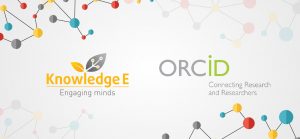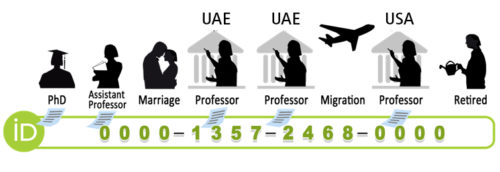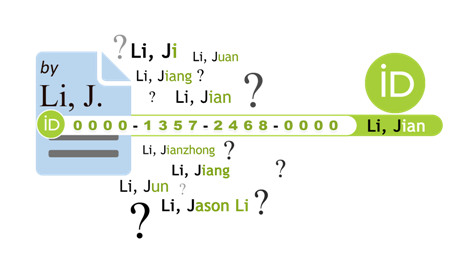
There has been an explosion of ‘ORCID-fever’ in recent months throughout Middle Eastern university corridors. Lots of researchers are talking about this emerging identifier but not all are signing up. Here, I examine the top 5 reasons why scholars have decided to sign up, or not.
Before we start, what is it?
The Open Researcher & Contributor ID (ORCID) is a unique identifier for researchers. Each researcher gets one unique number that is then linked to their list of publications, contributions and funding grants. You can now send your ORCID number to anyone who you would like to review your activity such as potential employers, friends, colleagues, funding bodies. For any activities you prefer to keep secret, you simply click a padlock that keeps the content confidential but lets people know the article is there. An ORCID identifier is an improvement on your name because it is a number that cannot be confused for another and therefore instantly solves the problem of finding lists of research articles published by people with similar names or using variations on their own name.

Top 5 reasons for registering for an ORCID record:
- It’s yours and anyone can get one. With 16 digits like a credit card, there are enough potential combinations for everyone on the planet 10 million times over. So, no ORCID can ever be duplicated and you maintain ultimate control over your own record and control security over all your own data. You keep control using the ‘Who can see this’ feature that gives you the option to lock, partially lock or unlock every individual article or contribution you add to your record and you can change these settings at any time
- It gets your name right – for ever. Many people have similar, or even identical names. This poses a big problem for research databases; it is easy to find lots of research papers with the same author name that are in fact written by different researchers, e.g. there are 84,742 research articles indexed in Scopus by J. Smith which means he/she has published 1 paper every day for 232 years – or more likely they have been published by multiple people with the same or similar names. In other cases, transliteration, different spellings or name changes means that some people have to search more than one variation of the name to compile a list of their own articles in traditional databases – a tedious and repetitive task, now ORCID solves that problem – permanently
- You can complete the registration process in under a minute – I challenge you! All you need is your name and your email address. Click here to register today: https://orcid.org/register You can then populate your record with your own articles and contributions at any time and come back to it as frequently as you wish, which saves you having to do it all in one sitting. I often invite the listeners in my lectures to take out their phones (the ones not in use already) and register for an ORCID record. Then I ask for a show of hands and count the extra ORCID numbers at the end of the talk
- It’s free, for all academics in the world. ORCID is a not-for-profit organisation founded by a network of academics across all sectors and by law cannot ever be sold or managed by a commercial entity
- You need one. More and more workflows are now inviting you to speed things up by using your ORCID. Already, over 3,000 publishers now include ORCID as a field in their manuscript submission process, while a smaller but growing number e.g. PLOS, IEEE, The Royal Society and Hindawi have made it mandatory meaning you can’t submit a manuscript without one. Similarly, research funding organisations like The Wellcome Trust, the Foundation for Science & Technology in Brazil and Research Councils UK now use your ORCID to make your application for funding easier for everyone
3 reasons against using ORCID debunked
- It’s just another profiling system. Not true. ORCID is the unique identifier that links your profiles including Scopus Author Identifier, ResearcherID and Linked In. ORCID can easily be synchronised with these so that adding records to one system can automatically be updated in ORCID, and even better adding records to ORCID can be made to appear in your various profiles in one go, meaning you only need to keep your ORCID up to date and everything else will synchronise
- I’ll have to type in data on all my research papers again. False. ORCID is already integrated with a multitude of systems including Crossref, Datacite, Pubmed Central and REDALYC so a simple search on your name results in a list of matches. All you have to do is scroll down and click the box if the article is yours and ignore it if it wasn’t. That way you can add all your papers a just a few minutes
- It can be ‘gamed’. True. One of ORCID’s advantages, namely that individual researchers know their own articles better than anyone else also relies on accuracy and honesty on the part of the scholar. However, some universities have appointed administrators to help researchers populate and maintain their records which is as easy as clicking once for each published article thereby increasing their accuracy
Sign up for your ORCID today https://orcid.org/register and tell the community about your experience …
By Philip J. Purnell, Director – Research & Publishing Services – Knowledge E




